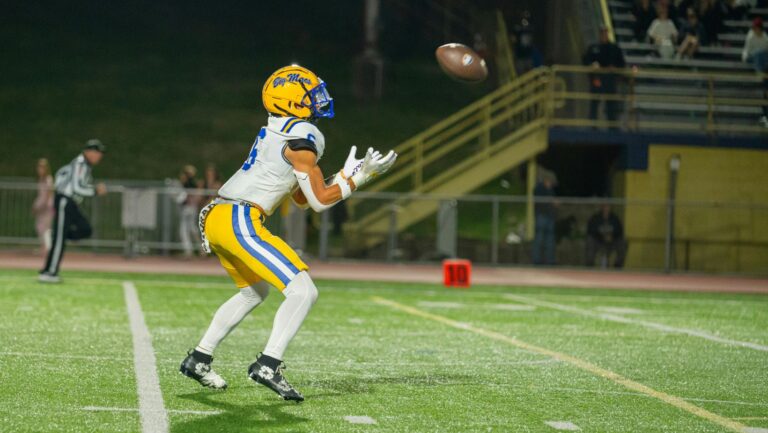If you’ve been watching sports for a while, you’ve probably noticed how much an athlete’s mindset shapes their performance, and it’s a part of what makes sports so exciting. Sometimes, an underdog team running on pure adrenaline manages to beat a much-favored, stronger team, not so much with skill, but with determination and passion. But that’s only a small piece of the bigger picture.
Plenty of things can influence a player’s mental state because, at the end of the day, they’re human. A tough interview from the coach criticizing work ethic, for example, can hit hard and disrupt the balance of a team’s internal atmosphere, because it can bruise egos and knock confidence. Similarly, negative noise from fans on social media doesn’t help either and potentially, even betting odds.
Just look at review platforms like Legalbet, which break down online sportsbooks by features like market depth, odds-value, and overall popularity with bettors. If you check full user ratings here, you’ll see that punters have dozens of licensed operators to choose from, and the best of them offer betting markets on more than 30 sports.
But athletes, too, can, of course, easily come across odds on their own games, whether through social media, predictions posted online, or general sports chatter. Seeing their team listed as an unexpected underdog can drag them down a bit, while being shown as the favorite can give them a small confidence boost.
Effects of Being the Underdog
When athletes see themselves labeled as underdogs from the start, two opposite psychological reactions usually show up, something of a double-edged sword. The first reaction creates those exciting moments when an underdog suddenly rises to the occasion thanks to the classic “prove them wrong” mindset.
Some athletes get a boost from this, turning their underdog status into fuel. They feel less pressure and let go of emotional weight that could hurt their performance. Expectations are low, and therefore, if they lose, it’s what everyone predicted. When there’s nothing to lose, it can help teams produce a surprise win, because it gives teams room to compete without fear and take risks more freely.
Many athletes will say that being the underdog doesn’t affect them. A recent example is UFC fighter Dricus Du Plessis, who in 2025 wasn’t the favorite against Khamzat Chimaev. Even so, he said the only thing that matters is winning because “odds don’t make the fight, fighters do.”
Then there’s the other side, as some athletes internalize negative odds and feedback differently. Instead of gaining confidence, they lose it. Seeing a 20-to-1 line against them, for example, can trigger anxiety and pessimism, which can lead to weaker performance. Their decision-making may suffer, and intrusive thoughts can push them into choices they wouldn’t normally make.
When an Athlete or Team is the Favorite
Being seen as the heavy favorite, in contrast, brings its own psychological pressure, and surprisingly, most of the time it’s not positive because athletes feel the weight of high expectations. Ironically, that can chip away at their confidence and lead them to perform below their usual level.
The “we have to win” mindset can create anxiety because players start focusing more on the result than on the process that made them favorites in the first place. Another issue with this is an unconscious drop in effort. In sports, overconfidence can easily backfire. Players assume the win is already theirs, become complacent and end up with a completely different reality.
This is why coaches and players often say it’s better not to pay much attention to betting odds and to approach every competition with the same level of seriousness, even when they’re expected to win. A good example is Luis de la Fuente, Spain’s coach at Euro 2024. Before the final against England, he said, “favorites are something for the betting companies,” trying to ease the pressure and the rising expectations around his team. Maybe that grounded mindset was one of the key factors behind their victory.
Indirect Influences

The effect of betting odds isn’t usually a clear thought like “the line is five-to-one against me.” It works in a quieter, less obvious way. Athletes see everything said about them in the media and on social networks, and conversations about form or momentum shape public expectations.
That’s where ideas about favorites and outsiders appear, and these expectations can influence players in different ways. A home favorite may feel extra pressure because of what’s being said about them, and lose focus. An underdog, supported by the crowd, can gain confidence and play with more freedom, because sport has its own strange logic, after all.
Why the Impact isn’t Universal
Even though all these situations exist and affect the sports world, they don’t apply to everyone. These days, individual athletes, clubs, and national teams usually have a full support staff helping them manage everything around them, including sports psychologists to help athletes handle pressure and expectations.
It’s no secret that emotions matter in high-level sports, and teams are always looking for ways to reduce negative influences. Of course, a newcomer is not the same as a seasoned athlete who’s learned not to get shaken by odds, predictions, or outside commentary, but still, at all levels, odds can affect the mindset of athletes.




